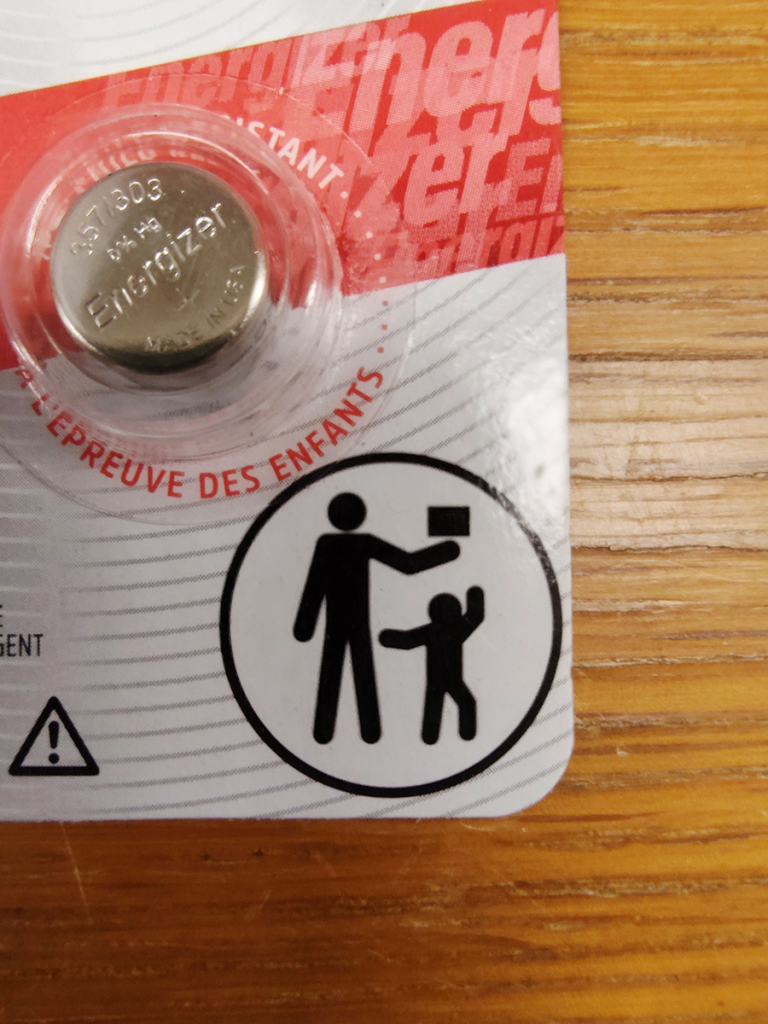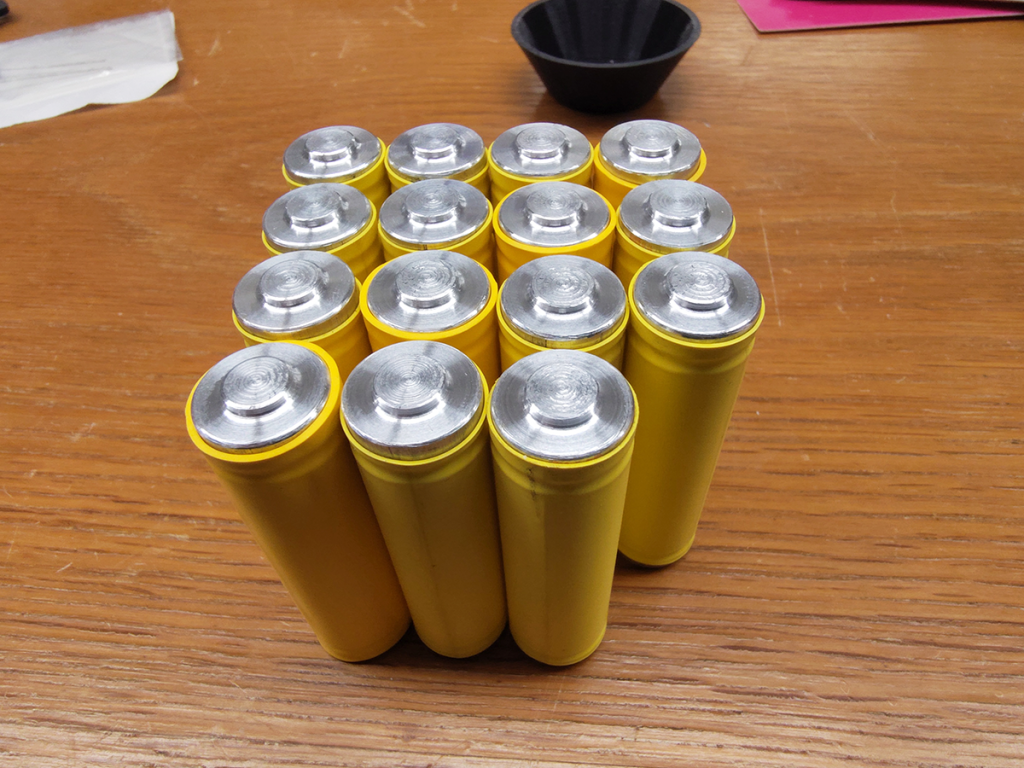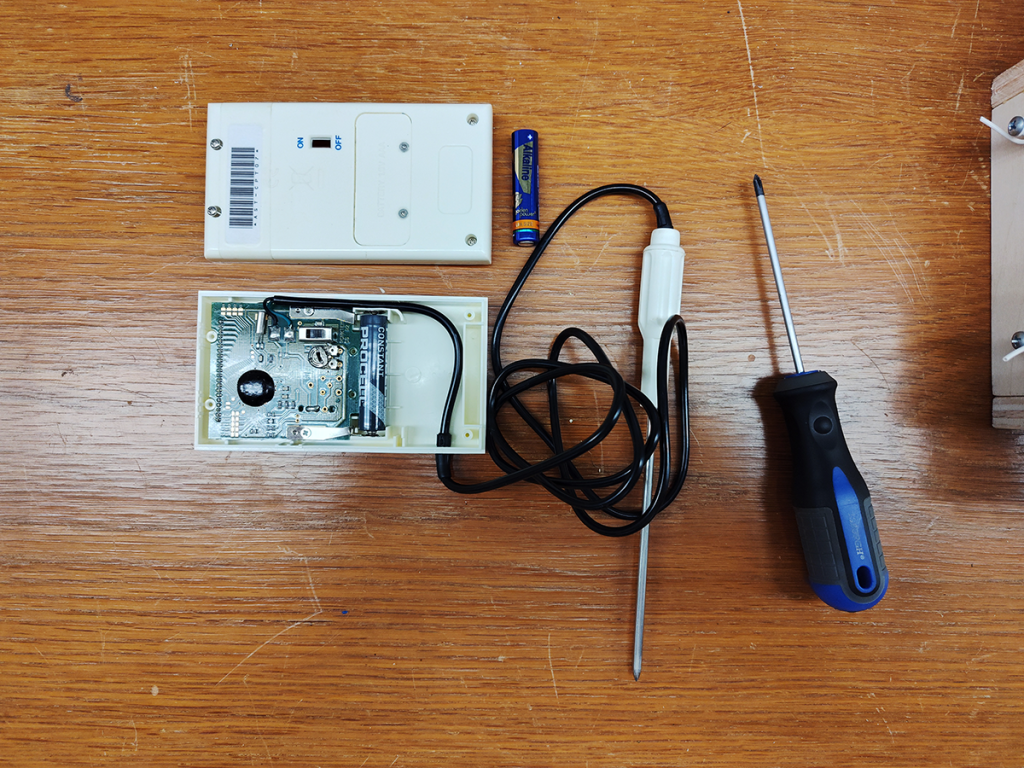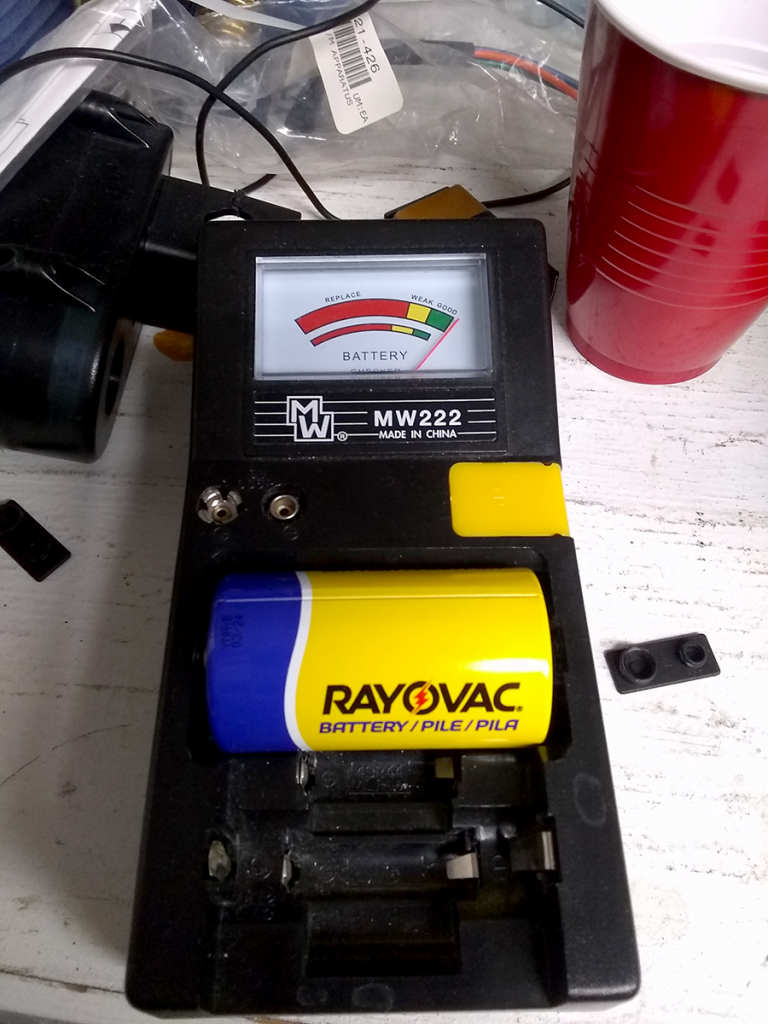
The stick figure logo is clearly intended to convey the idea of “keep out of reach of children,” but the vibe is definitely “play keepaway with children.”
Discoveries in the Physics & Astronomy shop | Science, curiosities, and surprises

The stick figure logo is clearly intended to convey the idea of “keep out of reach of children,” but the vibe is definitely “play keepaway with children.”

What to do when a battery-powered device would function better with fewer batteries? In our case, a dead-simple DC motor that gives better results when operating at 4.5 V instead of 6 V – but the holder that completes the circuit is sized for four AA batteries.
The answer: a battery-shaped slug of aluminum, which happily conducts current, fits in the place of a functional battery, and has some adorable bright-yellow heat-shrink tubing to stand out! Mostly because bright colors are easier to identify when you drop something on the floor. Round things have a habit of rolling off of surfaces at inopportune times.

When the screw heads to the battery access panel are stripped, just go all the way and open up the entire housing. Why not?
The real question is this: why are those screws stripped? Did it arrive that way, battery installed, or did they take a real beating after popping the first battery in? Why have screws to keep it shut in the first place?

As one might imagine, hundreds of students in labs each semester means we use a lot of batteries. Just a ton of ’em.
Sometimes we need them at full capacity, but certain uses can be fine if they’ve started to develop some of that internal resistance after a while. Certain situations call for the higher potential current output of alkalines, while others need lithiums to keep the voltage from dropping too low. And at other times, the relative calm of a zinc-carbon battery is just perfect, like when students are building basic circuits and there’s a risk of shorting the batteries.
Much lower risk of booms and burns with the zinc-carbon.
Still, unless a battery’s in real rough shape, you never know how much juice they’ve got left just by looking. Pop one on the tester to see. When they’re almost new, you can hear the needle tap the far side!